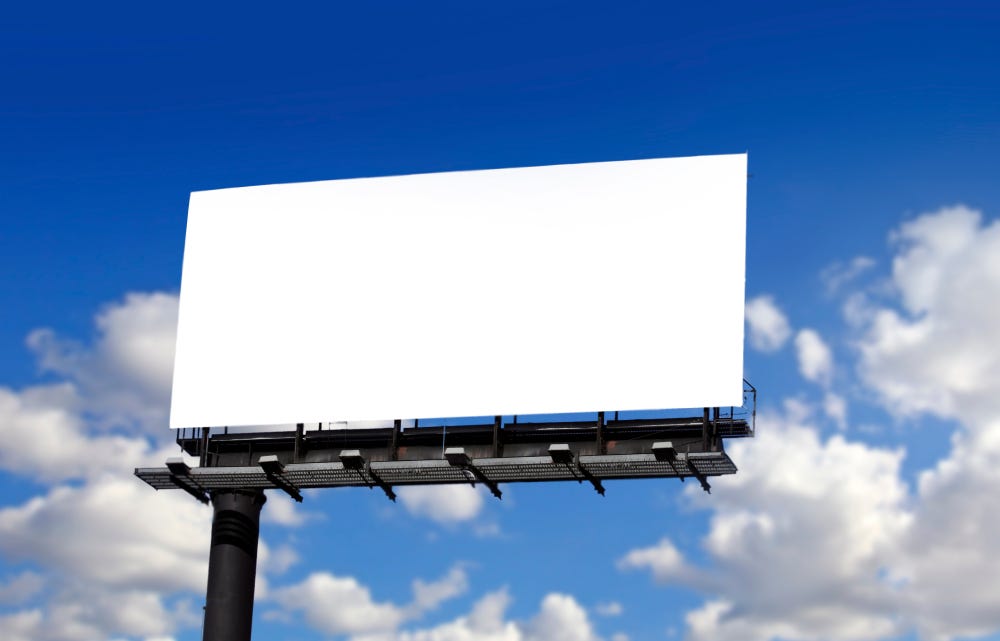I'd Love To Change The World
10 years after its launch, New Jersey online gambling is thriving, but why are so few states following the Garden State's roadmap?
The Bulletin Board
NEWS: After ten successful years of online gambling in New Jersey, one has to wonder why other states haven’t followed suit.
BEYOND the HEADLINE: With its multi-billion-dollar budget shortfall, is New York the best candidate to legalize online casinos in 2024?
NEWS: Missouri sports betting petitions enter the signature-gathering phase.
VIEWS: Problem gambling rates are relatively constant.
AROUND the WATERCOOLER: It’s bad luck to believe in superstitions.
STRAY THOUGHTS: I know it when I see it.
SPONSOR’S MESSAGE - Underdog: the most innovative company in sports gaming.
At Underdog we use our own tech stack to create the industry’s most popular games, designing products specifically for the American sports fan.
Join us as we build the future of sports gaming.
Visit: https://underdogfantasy.com/careers
10 Years of Online Gambling Success in NJ Hasn’t Convinced Other States to Follow Suit
In an AP article on the 10th anniversary of online gambling in New Jersey, Wayne Parry asks why legalized online gambling hasn’t caught on in the US.
“In the 10 years that it has been operating in New Jersey, internet casino gambling has generated nearly $7 billion in revenue for casinos and their affiliates, sent over a billion dollars in tax revenue to the state’s coffers and helped keep Atlantic City’s nine casinos afloat while they were shut down during the COVID-19 pandemic.”
There is no shortage of answers to Parry’s question. Here are three.
Answer #1: A lingering fear of cannibalization from some casino operators (a recent Maryland study did little to assuage).
As I wrote last week when reporting on the Mayland online gambling study:
“The TIG report has one extremely startling data point, and that data point is very likely going to derail Maryland’s (and potentially other states’) online gambling hopes.
“According to the report, TIG “observed 2% same-store casino revenue growth in non-iGaming states, versus an 8.2% decline in iGaming states, suggesting a cannibalization rate of approximately 10% of casino gaming revenue.”
Answer #2: (Whether it’s correct or not) Online casino is seen as a more addictive form of gambling.
As Saiber’s Jeremy Kleiman told PokerFuse:
“For some inexplicable reason, legislators and policymakers have found it easier to justify legalizing online sports betting than online casino/poker. Perhaps it is because sports betting is perceived as already part of our culture (albeit previously illicit), or perhaps online casino is perceived as more addictive.”
Answer #3: A lack of cohesive messaging, as the AGA has stayed on the sidelines of the online casino debate.
On that front, West Virginia Del. Shawn Fluharty told PokerFuse:
“The industry has failed in both the messaging and the education gap when it comes to igaming. So, yea, there was a bit of naivety in thinking igaming would naturally follow sports betting in states.”
But any answer assumes the choice is between legal online casinos and no online casinos. In actuality, the choice is between legal online casinos and illegal online casinos. As Global Head of Government Affairs and Legislative Counsel at Light & Wonder, Howard Glaser notes it should be a simple argument:
Regulate
Tax
Protect Consumers from illegal operators.
Unfortunately, it’s not that simple. It hardly ever is.
Beyond the Headline: It’s Up to You New York
I’ve already downgraded Maryland’s chances to legalize online gambling, so is New York the next best candidate?
New York needs money. The state is staring down a $4 billion budget shortfall, and New York City just made some very unpopular cuts to services from the library to sanitation to the police.
That has some pointing out the revenue potential of online casinos, which could help close the budget deficit with upfront licensing fees and ongoing tax revenue estimated to be in the $500 million to $1 billion range annually, depending on the tax structure.
As Light & Wonder’s Howard Glaser wrote on LinkedIn, a Parkside Group poll (commissioned by the gambling industry) indicates strong support for online gambling in New York:
“New Yorkers support legalizing iGaming by an almost 2-1 margin to help close NY’s projected $4 billion budget deficit, instead of raising taxes.
“61% of voters favored iGaming as a way to raise revenue to close the state’s budget gap.
“Over half of New Yorkers supported iGaming regardless of increased revenue.”
But, with three New York City land-based casinos on the agenda, there may not be enough oxygen in the room for online gambling.
Sponsorship opportunity
Want to sponsor the fastest-growing newsletter in the gambling space? Straight to the Point has multiple sponsorship opportunities available.
Reach out to Steve at iGamingPundit.com for more details.
Missouri Sports Betting Petitions Get the Green Light
Missouri Secretary of State John Ashcraft has approved eight sports betting petitions, allowing supporters to begin the signature-gathering phase of the process.
Here’s what it takes to get a petition on the ballot:
“Petitions proposing statutory changes must be signed by five percent of legal voters in any six of the eight congressional districts. Petitions proposing constitutional changes must be signed by eight percent of legal voters in any six of the eight congressional districts.”
The sports betting petitions would need to meet the 8% threshold, with the signatures submitted by May 5, 2024.
The petitions are the latest attempt to legalize sports betting in Missouri. Unfortunately, the Show-Me State has been anything but when it comes to sports betting, with legislative efforts derailed by a group of pro-VLT lawmakers led by State Sen. Denny Hoskins.
As I wrote in August, Hoskins firmly believes that “sports betting will not come to Missouri unless VLTs are part of the deal.”
Sponsor’s Message: BroThrow.com is building the most player-friendly company in sports gaming.
Our subscription-based, no-juice sports betting platform provides the fairest, simplest way to bet on sports with your friends.
Check out our tech: https://brothrow.com/
Why Is the Problem Gambling Rate So Consistent?
One-in-40. That is the problem gambling rate from the recently released Gambling Surver for Great Britain. It’s an interesting number, as virtually every poll, survey, or research project that uses a similar bar reaches the same conclusion: a problem gambling rate in the 2-3% range.
Why is that interesting? Because the rate has been relatively unchanged for decades. Regardless of access, online gambling, legal or illegal sports betting, the rate is more or less static.
That leaves me with two thoughts/questions:
Does access (legal or illegal) make a difference, or will people who want to gamble simply find a way to gamble?
Why hasn’t the increased focus on responsible gambling policies and problem gambling funding and treatment made a dent?
There is a third possibility: the rate has risen with increased access, but the current measures have kept them in the 2-3% range.
It also calls into question the “sky is falling, this is x times more addictive” rhetoric around sports betting, online slots, and other forms of gambling. It may be accurate, but it’s not consistently showing up in the data.
Around the Watercooler
Social media conversations, rumors, and gossip.
This is one of the best tweets I’ve seen in a long time. Kudos to Nick Jones for perfectly encapsulating most people’s relationship with, and attitude toward, luck.
Stray Thoughts
After receiving an ad for NBA League Pass, a reader messaged me saying the ad caused him to think about how the responsibility for the proliferation of sports betting is split between operators, politicians, media companies, and other cogs in the wheel. The reason: “I don’t ever bet on the NBA, but maybe I should buy NBA League Pass and try it!”
Jamie Salsburg has talked about this regarding Fanatics FanCash promotion. It wasn’t the promotion per se. It was the targeting of someone who is showing no interest in sports betting with a FOMO offer.
Nudges are fine, but we shouldn’t push people into sports betting.
Here is an example of an unsolicited ad that I received via email from CBS Sports - I’ve received this ad twice.
To be clear, these ads and offers aren’t violating any rule I can point to; they just feel off in some yet-to-be-articulated way.








